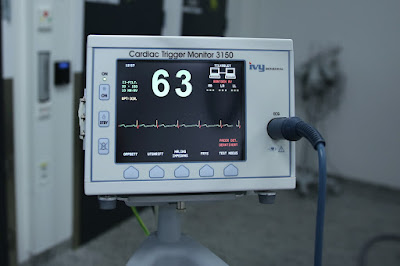Emergency medicine relates to the healthcare services provided to patients in emergency departments. It is one of the most important departments in a healthcare setting, as it deals with a wide range of different services associated with different medical specialties. However, it is critical to know that even though it is among the critical part of hospitals, not many healthcare providers like to adapt the profession of emergency medicine.
In a recent study, researchers from Rawalpindi, Pakistan,
surveyed 144 individuals November and December 2023. They found that about
33.3% of individuals have not considered adapting emergency medicine as a
career. On a further note, about 43% of individuals reported that they have not
gone through clinical placement in this specialty. Interestingly, a large
percentage of these individuals also reported that they, their family members,
or close friends have already gone through the problems linking to medical
emergency.
The researchers further reported that several important
barriers associated with the adoption of this profession. Among these barriers,
they noted that elevated levels of burnout, inability to work in an independent
manner, poor work-life balance, increased risk of mortalities, more unfriendly
environment, decreased level of patient follow-up, and lack of exposure.
Elevated burnout level is considered as the most frequently occurring barrier.
For instance, individuals working in emergency departments may experience
increased workloads, more restlessness and responsibilities during working
hours, and no-to-less margin of error. More unfriendly environment is also
among the top most barriers in emergency medicine career. These conditions then
negatively affect the mental and physical effects on healthcare providers. Aside
from these barriers, some of the participants also reported that family
pressure also restricted their chances of pursuing career in emergency
medicine.
Conclusively, the researchers noted that a large number of
doctors and medical students do not think of adapting this career in
professional life. However, it seems imperative to promote the importance of
emergency medicine among healthcare providers. This can be done through
education and training of these individuals. For instance, researchers stated,
“a considerable proportion of the participants reported that they had not
undergone any clinical internship in EM (emergency medicine).” Therefore,
increasing the level of internships in the field of emergency medicine can be
of great help. Moreover, increasing the awareness and interest among doctors is
also important for the promotion of emergency medicine as a career. Furthermore,
increasing the number of individuals working in the emergency department is
also beneficial in promoting this career. These individuals can help in dealing
with several important issues, such as heavy workloads, staff shortages,
overcrowding of patients, violence in the workplace, and increased work
intensity. Eventually, increasing stipends and incentives can also help in
dealing with the problem of emergency department shortages and reducing burden
on doctors and nurses in emergency departments.
Reference:
Mutaal, A., Bajwa, S., Rehman, M. S. U., Ashiq, K.,
Shuaib, F., Shehzad, D., . . . Noor, Z. (2024). Barriers in Opting for
Emergency Medicine as a Career in Pakistan: A Cross-Sectional Survey Study. Cureus,
16(1), e52525. https://doi.org/10.7759/cureus.52525




No comments:
Post a Comment